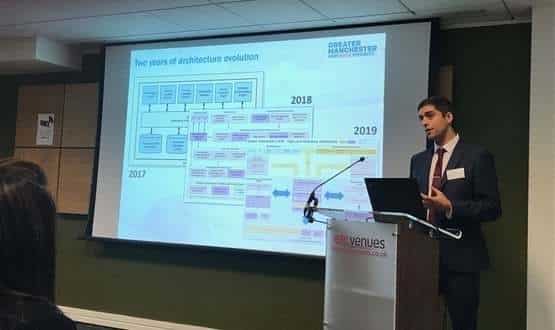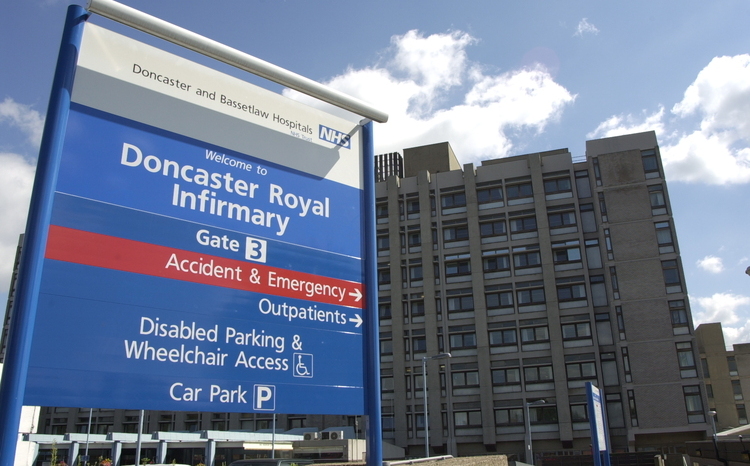Shared care record teams celebrated at Graphnet event
- 2 December 2019

Shared care record teams from up and down the country were celebrated at Graphnet’s The Big Share event.
Held in Birmingham on 28 November, the event featured presentations from the Nottinghamshire, St Helens, Bolton, Salford, Frimley and Cheshire shared record systems as well as the Greater Manchester Local Health and Care Record (LHCR).
Markus Bolton, Graphnet’s director, introduced the agenda by explaining how shared care records were now the norm – Graphnet had systems representing 14m citizens – and how the focus had now shifted from information sharing to using the same information for advanced care planning and population health.
Communities with shared records were now breaking new ground in the UK and internationally, he said, and that events like these were part of a drive for users to share experience and benefits.
Then it was over to the Greater Manchester Care Record, one of the UK’s largest shared care system holding records for 2.8m citizens, covering 10 CCGs, 480 GP practices, eight acute trusts, six community and mental health trusts, 10 councils, hospices and the ambulance service.
The record was originally deployed as independent instances by a number of Manchester CCGs. Then in 2018 it was decided to create a Manchester-wide record which merged the existing records and added the rest of Greater Manchester’s health and social care system.
The LHCR programme is a major focus in Manchester. Digital programme manager for Greater Manchester Health and Social Care Partnership, Daniel Perrin, said the aim was to use the Graphnet record to “really transform the care of our population, and also their self-care”.
“Across Greater Manchester we are trying to liberate our data so it’s usable and useful where it’s needed,” Perrin added.
“Every clinician from Greater Manchester can see the information, which is really important in an area where there is so much mobility.
“We’re proud in GM of where we are now, and we are really driving this programme because of the benefits it brings to the people of Greater Manchester.”
The audience also heard from the transformation team at Frimley Health and Care ICS who demonstrated Graphnet’s population health management tool. The tool allows them to have a picture of what health services are being used and where across the ICS.
Associate director for system transformation, Sharon Boundy, said they could show what organisations can do if they “pull information” from its shared care record and “into an intelligence platform”.
CIO, Mark Sellman talked the audience through their tool, showing how it was possible to analyse the population by condition, co-morbidity and location and explained how it combined longitudinal health and care records with “nationally available data such as social, economic and demographic factors by postcode”.
Sellman showed how it was possible, for example, to see the impact of different care pathways for conditions such as diabetes.
He added the platform is about “enabling conversations between executives about population health”, providing the insights required to transform wider services.
“This isn’t just a health conversation, you have to include other bodies such as local authorities,” he added.
Finally presentations from Nottingham and Cheshire provided statistics as to how the system was benefiting patients and staff. Benefits reports are under development and will be issued next year.





